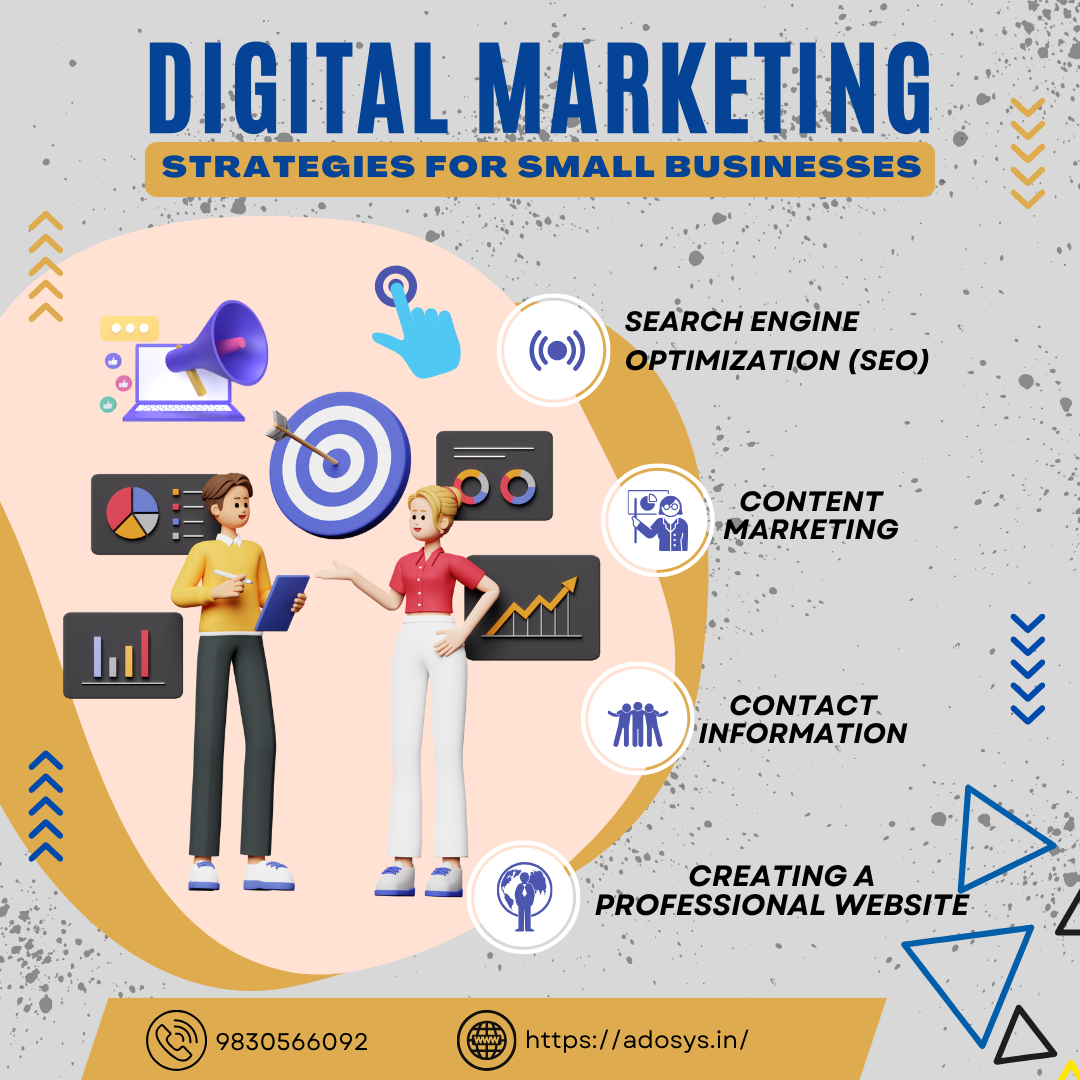
28-03-2024
Digital Marketing Strategies for Small Businesses
In today's fast-paced and highly competitive business landscape, digital marketing has become an essential tool for small businesses aiming to thrive and expand their reach. Gone are the days when local businesses relied solely on word-of-mouth advertising or traditional marketing methods. In the digital age, small businesses have the opportunity to connect with a global audience, build their brand, and boost sales through effective digital marketing strategies. In this blog, we will explore the key digital marketing strategies that can help small businesses flourish in the digital realm.
Understanding the Digital Landscape
Before diving into specific strategies, it's crucial for small business owners to understand the digital landscape and its significance. The digital landscape encompasses various online platforms, including websites, search engines, social media, email, and more. Consumers today spend a significant amount of their time online, making it imperative for businesses to establish a strong digital presence.
1. Creating a Professional Website
A professional website is the cornerstone of any successful digital marketing strategy. It serves as your online storefront and provides potential customers with essential information about your products or services. Here are some key considerations when creating a website:
- User-Friendly Design: Ensure your website is easy to navigate and visually appealing.
- Mobile Optimization: Optimize your website for mobile devices, as an increasing number of users access websites via smartphones.
- High-Quality Content: Create valuable and relevant content that informs and engages visitors.
- Contact Information: Make it easy for visitors to contact you by prominently displaying contact details.
2. Search Engine Optimization (SEO)
SEO is the practice of optimizing your website to rank higher in search engine results pages (SERPs). When potential customers search for products or services related to your business, you want your website to appear at the top of the search results. Here are some SEO strategies for small businesses:
- Keyword Research: Identify relevant keywords that potential customers use when searching for products or services like yours.
- On-Page SEO: Optimize your website's content, meta tags, and images for search engines.
- Local SEO: If your business serves a specific geographic area, focus on local SEO to appear in local search results and on Google Maps.
3. Content Marketing
Content marketing involves creating and distributing valuable and relevant content to attract and engage your target audience. It helps establish your expertise in your industry and builds trust with potential customers. Consider these content marketing tactics:
- Blogging: Regularly publish informative blog posts on topics related to your industry.
- Video Marketing: Create engaging videos to showcase your products or provide educational content.
- Email Newsletters: Build an email list and send newsletters with updates, promotions, and valuable content to subscribers.
4. Social Media Marketing
Social media platforms offer a cost-effective way for small businesses to connect with their audience and promote their products or services. Here's how to leverage social media effectively:
- Choose the Right Platforms: Determine which social media platforms your target audience frequents and focus your efforts there.
- Consistent Posting: Maintain a regular posting schedule to keep your audience engaged.
- Engagement: Interact with your audience by responding to comments and messages promptly.
5. Paid Advertising
While organic traffic from SEO and content marketing is valuable, paid advertising can provide an immediate boost to your online visibility. Consider the following paid advertising options:
- Google Ads: Create targeted pay-per-click (PPC) campaigns to appear in search results for relevant keywords.
- Social Media Ads: Utilize paid advertising on platforms like Facebook, Instagram, and LinkedIn to reach specific demographics.
6. Email Marketing
Email marketing is a powerful tool for nurturing leads and retaining customers. Here's how to make the most of email marketing:
- Segmentation: Divide your email list into segments based on factors like demographics, purchase history, and interests.
- Personalization: Personalize email content to make recipients feel valued and engaged.
- Automation: Use email automation to send triggered emails, such as welcome emails, abandoned cart reminders, and follow-ups.
7. Analytics and Measurement
To ensure the success of your digital marketing efforts, it's essential to track and analyze performance. Use tools like Google Analytics to monitor website traffic, conversion rates, and other key metrics. Adjust your strategies based on data insights to continually improve your digital marketing efforts.
Conclusion
In the digital age, small businesses can compete and thrive by implementing effective digital marketing strategies. A well-designed website, optimized for search engines, combined with content marketing, social media engagement, and email marketing, can help small businesses establish a strong online presence, attract customers, and drive growth. By continually adapting and refining your digital marketing efforts, your small business can not only survive but also thrive in the digital age. Embrace the digital marketing landscape, and watch your business flourish in the online world.


